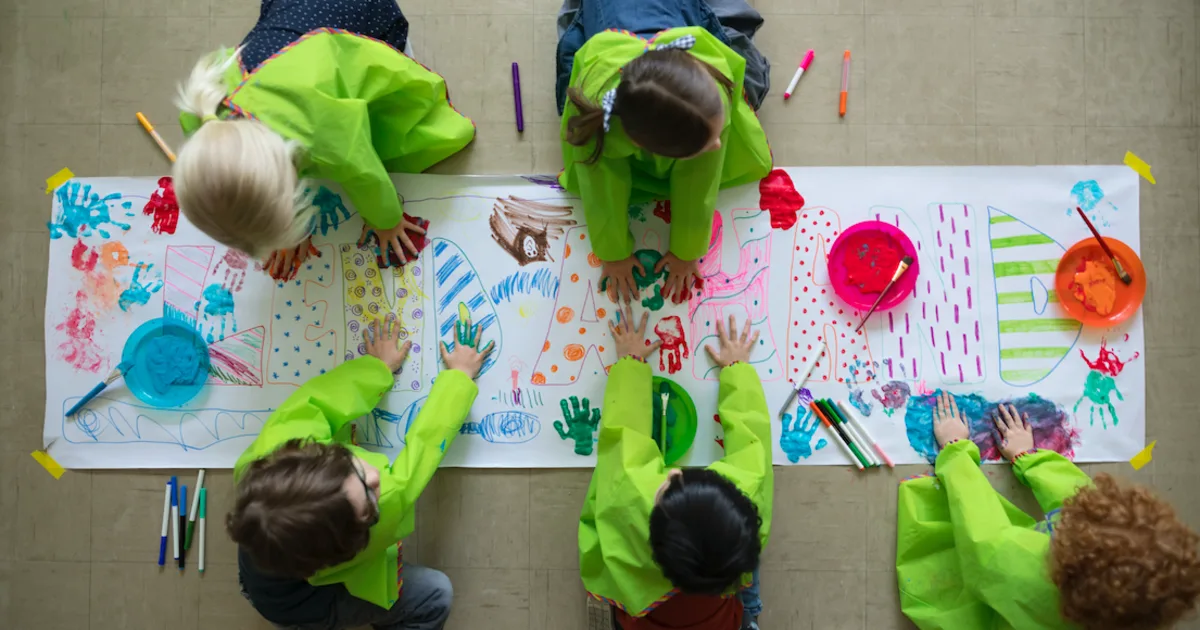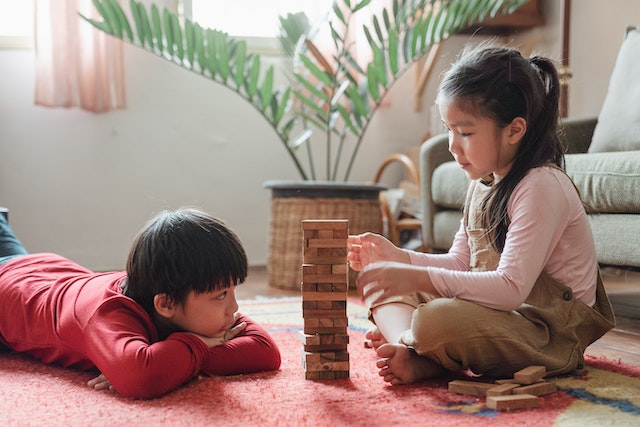The early years are the foundation for the rest of life. From birth to age eight, a child undergoes remarkable transformations that shape their cognitive abilities, emotional regulation, social skills, and physical capabilities. These years play a major role in shaping a child’s physical, emotional, cognitive, and social well-being. In this blog, we will look at why early childhood development matters and why investing in it is important for a brighter future.

The Science Behind Early Brain Development
The human brain develops at a fast pace during the first few years of life. Research from neuroscience shows how important this period is:
In the first few years of life, more than one million neural connections are formed each second, a pace never repeated again.
The human brain undergoes development during the first few years of life. By the age of three, a child’s brain has already formed trillions of connections, known as synapses. These connections lay the groundwork for learning, behavior, and overall cognitive function. Good stimulation and nurturing experiences during this period can help brain development, setting the stage for future learning success.
This process, known as “brain architecture,” follows a sequence from simple to complex. Basic circuits that process fundamental information develop first, followed by more complex circuits that process more sophisticated information. This means simpler skills must develop before more complex ones can emerge.
Read more at The Science of Early Brain Development
Sensitive Periods for Development
Research has identified specific windows of opportunity, or sensitive periods, when particular types of development occur most readily:
- Language acquisition (birth to 6 years): Children are naturally wired to absorb language during this period, making it easier to learn multiple languages than at any other time in life.
- Emotional attachment (birth to 2 years): The foundation for trusting relationships and emotional regulation is established through consistent, nurturing interactions with caregivers.
- Visual and auditory processing (birth to 10 years): Brain circuitry for processing sensory information develops and becomes more specialized.
- Higher cognitive functions (3 to 8 years): Executive functioning skills like attention control, working memory, and cognitive flexibility develop significantly.
These sensitive periods show why early intervention works well, and why delays in addressing developmental concerns can have effects over time.
Formation of Core Skills
Early childhood is the prime time for developing core skills that are essential for a child’s future growth. Language and communication skills, problem-solving abilities, emotional regulation, and social interaction capabilities are built during these early years. These skills prepare children for academic success and give them the tools they need to navigate relationships and challenges throughout their lives.
Language and Communication
The explosion of language development between ages 1-5 is remarkable. A typical 18-month-old knows about 50 words, but by age 6, the average child has acquired a vocabulary of approximately 10,000 words. This language acquisition does not happen in isolation, it requires rich interaction with adults who respond to a child’s vocalizations, engage in conversation, read books aloud, and provide a language-rich environment.
Language skills developed during this period correlate strongly with later reading comprehension, academic achievement, and even career success. Children who enter kindergarten with strong language foundations are more likely to become proficient readers by third grade, a milestone that predicts high school graduation rates.
Long-Term Impact on Health
Health outcomes in adulthood can often be traced back to experiences in early childhood. Proper nutrition, access to quality healthcare, and a supportive environment during these years contribute to healthy physical development. Addressing health-related issues early can prevent a range of health problems in the future, showing the importance of early intervention and care.
 |  |
|---|
Building Emotional Resilience
Emotional well-being is a cornerstone of overall health. Early childhood experiences shape a child’s emotional responses and coping mechanisms. A nurturing and secure environment during this phase fosters emotional resilience, allowing children to better manage stress and challenges as they grow older. Early childhood is an important time for developing this resilience through:
- Secure attachment relationships with responsive caregivers who provide comfort during distress
- Age-appropriate challenges that allow children to develop coping strategies
- Supportive environments that validate emotions while teaching self-regulation
- Growth mindset development that encourages persistence and views mistakes as learning opportunities
During this period of rapid growth, children may experience temper tantrums as they learn to manage their emotions and assert independence.
Lifelong Learning Attitude
The early years are marked by an innate curiosity and eagerness to explore the world. Encouraging a love for learning during this time builds a positive attitude toward education that can last throughout life. Curiosity-driven learning experiences foster intellectual growth and fuel a child’s creativity and critical thinking abilities.
Even family travel with kids can provide valuable developmental experiences through exposure to new environments and routines.
Through exploration, pretend play, and hands-on discovery, children develop:
- Creative thinking and innovation
- Hypothesis testing and scientific reasoning
- Persistence and concentrated attention
- Collaborative problem-solving
- Intrinsic motivation and engagement
 |  |
|---|
Socialization and Interpersonal Skills
Early childhood is when children begin to understand social dynamics and develop interpersonal skills. Positive interactions with caregivers, peers, and the community lay the foundation for healthy relationships in the future. Learning to share, communicate, and empathize during these years sets the stage for effective collaboration and teamwork later in life.
The Economic Case for Investing in Early Childhood
Beyond the individual benefits, economists have made arguments for societal investment in early childhood development. Nobel laureate economist James Heckman’s research shows that high-quality early childhood programs yield returns of 7-10% per year through:
Reduced special education costs Higher graduation rates and workplace productivity Lower crime rates and incarceration costs Decreased need for remedial education Better health outcomes and reduced healthcare costs
This return on investment exceeds many traditional economic development strategies. Importantly, programs targeting disadvantaged children show the highest returns, making early childhood investments a way to address inequality and promote social mobility.
Conclusion
The early years of childhood development have implications for an individual’s life. These years offer a window of opportunity to shape a child’s physical, cognitive, emotional, and social well-being. By investing in quality early childhood education, healthcare, and nurturing environments, society can lay the groundwork for a brighter, more prosperous future.
As parents, caregivers, educators, and policymakers, recognizing and responding to the role of early childhood development is not just an obligation, it is a way to create positive change. When we prioritize our youngest citizens, we transform individual lives and build stronger, more equitable, and more prosperous communities for generations to come.